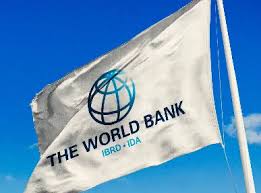Nigeria’s foreign direct investment (FDI) has continued to perform below expectations, with the World Bank revealing that the country attracted less than one per cent of its GDP in FDI as far back as 2014, a trend that has persisted due to what it described as “structural constraints” limiting the business environment.
These constraints include macroeconomic instability, a volatile foreign exchange system, high energy and logistics costs, insecurity, and unpredictable regulatory policies, all of which have contributed to an increasingly unfriendly investment climate. The situation has worsened in recent years, leading to a significant drop in investor confidence and the exit of several multinational corporations from the country.
Companies such as Unilever Nigeria PLC, GlaxoSmithKline Consumer Nigeria, Procter & Gamble Nigeria, Sanofi-Aventis Nigeria, ShopRite Nigeria, Equinox, Bolt Food, and Jumia Food Nigeria have either scaled back operations or exited entirely, citing unsustainable operating conditions.
According to Nigeria’s National Bureau of Statistics (NBS), FDI in Q1 2024 stood at $119.18 million, accounting for just 3.53 per cent of the total capital importation of $3.376 billion. The situation worsened in Q2 2024, when FDI plummeted to $29.83 million—the lowest quarterly level ever recorded, based on available data dating back to 2013. However, by Q3 2024, FDI rebounded slightly to $103.82 million, though this figure remains a far cry from Nigeria’s potential as a major investment destination in Africa.
The World Bank, in its recent report, acknowledged that the Central Bank of Nigeria (CBN)’s foreign exchange reforms helped attract more capital inflows into the country in 2024. However, the bulk of these inflows came from foreign portfolio investments (FPI) rather than FDI. The report revealed that FPI surged by 110 per cent in 2024, reaching $13 billion, largely due to attractive short-term yields and the possibility of currency revaluation.
While this has strengthened Nigeria’s financial account balance, the World Bank cautioned that FPI inflows are inherently volatile, particularly when they are short-term and speculative. This volatility poses risks to currency stability, interest rates, and broader economic planning.
Amid this weak FDI performance, African experts are calling for a new narrative—one focused on intra-African investment. At the recent African Direct Investment (ADI) sensitisation workshop in Cairo, Egypt, the Group Chief Economist of Afreximbank, Dr. Yemi Kale, urged African nations to shift focus from dependence on foreign direct investment to mobilising African capital for African development.
Presenting the inaugural ADI Baseline Report, Kale revealed that between 2017 and 2020, over $44 billion in intra-African investments were made by Africans. “This isn’t just capital,” he said, “It’s a catalyst, a vote of confidence by Africans in Africa.”
Speaking at the Focus Africa Trade and Investment Forum, Kale stressed that the traditional narrative of Africa as a passive recipient of investment from Europe, Asia, and North America must change. He argued for a more self-reliant and strategic investment approach, led by African stakeholders who understand the continent’s unique opportunities and challenges.
According to Kale, intra-African investments not only deepen economic integration but also build resilience, enhance productivity, and create jobs across key sectors such as manufacturing, agriculture, healthcare, and logistics. He urged governments, development finance institutions, and private sector leaders to collaborate in removing cross-border investment barriers, harmonising regulations, and promoting regional industrialisation.
Experts believe that encouraging African-owned capital to stay within the continent can help mitigate the impact of external shocks and build a more sustainable growth model.
In the face of Nigeria’s dwindling FDI and rising external pressures, the message from both the World Bank and Afreximbank is clear: while attracting global investors remains important, building confidence among African investors and reforming local business environments are essential for long-term growth.
